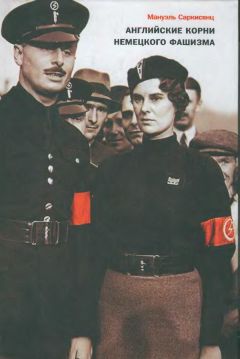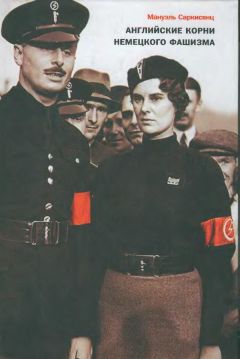Мануэль Саркисянц - Английские корни немецкого фашизма: от британской к австро-баварской «расе господ».
1383
1041. Adolf Hitlers Zweites Buch. Ein Dokument aus dem Jahr 1928 = Institut fur Zeitgeschichte, Quellen und Darsteilungen zur Zeitgeschichte, Band VII (Stuttgart, 1961), S. 159.
1384
1042. Ulrich von Hassell, Vom anderen Deutschland. Aus nachgelassenen Tagebuchern (Zurich, 1946), S. 205–223.
1385
1042a. Costello, p. 19.
1386
1042b. Hitler, Monologe, p. 196; 12./13. Januar, 1942.
1387
1042c. Louis Kilzer, Churchill's deception, p. 70.
1388
1042d. Newton, p. 191.
1389
1042e. Sir Alexander Cadogan, The Diaries, 1938–1945. Edited by David Dilks (London, 1971), p. 287: 20 May, 1940.
1390
1042f. Newton, pp. 193, 187.
1391
1043. Captain A. H. Maule Ramsay, The Nameless War (Berkshire, 1992), p. 69.
1392
1044. Das Schwarze Korps vom 27. November 1941, S. 5: "Ein Stuka gefallig" = Das Schwarze Korps. Organ des Reichsffuhrers SS. Ein Faksimile Querschnitt hrsg. von H. Heiber und Hildegard von Kotze (Bern und Munchen, o. J.), S. 179.
1393
1045. Klaus Hildebrand (wie Anm. 1085), S. 643f, 805, 807.
1394
1046. Forestall, Diaries, entry of 27. December 1945 (New York, 1951), p. 121.
1395
1047. Heinrich Himmler, Geheimreden 1933–1945. Edited by F. Smith and Agnes F. Peterson (Frankfurt, 1974), p. 232: Speech of 26 July, 1944; Captain Maule Ramsay, The Nameless War, pp. V, 119f.
1396
1047a. Scott Newton, Profits of Peace. The political economy of Anglo-German Appeasement (Oxford, 1996), pp. 168, 152; David Cannadine, Decline and Fall of the British Aristocracy (New York, 1999), pp. 527, 623, 546.
1397
1047b. Newton, p. 168; R. Shepherd, p. 32.
1398
1047c. Newton, p. 169.
1399
1047d. Cannadine, pp. 546f.
1400
1048. Captain Maule Ramsay, The Nameless War, pp. V, 119f; Francis Selwyn, Hitler's Englishman, The crime of Lord Haw-Haw (London, 1987), p. 120.
1401
1048a. Selwyn, p. 18.
1402
1048b. John Alfred Cole, Lord Haw-Haw and William Joyce. The full story (London, 1964), pp. 33, 31.
1403
1048c. William Joyce, National Socialism Now (n. p., 1937), p. 24.
1404
I048d. Cole, pp. 80, 295.
1405
1048c. William Joyce, National Socialism Now (n. p., 1937), p. 24.
1406
1048e. William Joyce, National Socialism Now, p. 57, 24, 55, 66.
1407
1048f. Cole, pp. 145, 164, 278, 216f, 245, 28; Selwyn, p. 120.
1408
1048g. William Joyce, National Socialism Now, pp. 70, 64.
1409
1048h. Marquis de Slade, Yeomen of Valhalla (Mannheim, 1970), pp. 33, 82, 28; Lord Lloyd, The British Case (1939), p. 48; Adrian Weale, Renegades, Hitler's Englishmen (London, 1994), p. 60.
1410
1048i. Rebecca West, The Meaning of Treason (London, 1949/2000), p. 112.
1411
1049. De Slade, pp. 35, 5; B. Semmel, Imperialism and Social Reform, p. 256; K. Arns, Index der anglo-judischen Literatur (Bochum, 1939), S. 9, cited in Hans Galinsky, "Sendungsbewusstsein der politischen Fuhrungsschicht im heutigen Britentum": Anglia. Zeitschrift fur englische Philologie, Vol. LXIV(Halle, 1940), pp. 9f, 331.
1412
1049a. John M. Mackenzie (Editor), Imperialism and Popular Culture (Manchester, 1986), pp. 173f.
1413
1050. De Slade, p. 113; Ronald Seth, Jackals of the Reich. The story of the British Free Corps (London, 1973), p. 124.
1414
1050a. De Slade, pp. 20ff, 72, 71, 63; Hans-Werner Neulen, Eurofaschismus und derzweite Weltkrieg. Europas verratene Sonne (Munchen, 1980 — Universitas Verlag), p. 169; Adrian Weale, Renegades, p. 176.
1415
1050b. De Slade, pp. 25f, 35, 47, 29f, 14–15, 18; Seth, pp. 82f; George H. Stein, Geschichte der Waffen-SS (Dusseldorf, 1967), S. 170f: Report of the SS-Obergruppenfuhrer Gottlob Berger to Himmlers Staff. US. Military Tribunal (Nurenberg), Fall 11, PDB 66-H, p. 46f.
1416
1051. Selwyn, Hitler's Englishman, p. I24ff, 216.
1417
1051a. De Slade, pp. 26, 76; Adrian Weale, Renegades, p. 120, 161, 200, 204, 206.
1418
1052. Madelaine Bunting, The Model Occupation. The Channel Islands under German rule 1940–1945 (New York, 1995), p. 83.
1419
1053. Ibid., p. 83.
1420
1054. Ibid., p. 43, 82f, 40f; Norman Longmore, If Britain had fallen (London, 1972); George Forty, The Channel Islands at War. A German Perspective (Shepperton, 1999), p. 139.
1421
1055. Bunting, p. 84.
1422
1056. Ibid., p. 106ff, 113.
1423
1057. Ibid., p. 76, 78f, 89f, 106rT, 113f.
1424
1058. Ibid., p. 268.
1425
1059. Thost, Als Nationalsozialist in England (Munchen, 1939), S. 322; Bunting (1995), pp. 278, 15, 299, 304, 260, XXX, 238, 81; Asa Briggs, The Channel Islands. Occupation and Liberation 1940–1945 (London, 1995), p. 45.
1426
1060. Captain Maule Ramsay, The Nameless War, p. 69.
1427
1061. H. Sundernann, Alter Feind — was nun? (Leoni, 1955), S. 7, 70f, 205.
1428
1062. Klaus Hildebrand, Das vergangene Reich (wie Anm. 1085), S. 759; Thomas Carlyle "The Nigger Question" 1948: Miscellaneous Essays, Vol. IV (London, 1899), p. 375.
1429
1062a. O. D. Schuddekopf, Revolutions of our Time. Fascism (New York, 1973), p. 17, 171; Gerwin StrobI, The Germanic Isle. Nazi Perceptions of Britain (Cambridge, 2000), p. 87; K. D. Bracher, "…Letters to the NSDAP… Eisenach 1939–1940": Journal of Modern History, LXVIII, Nr. 4 (Dezember 1996), S. 903, with reference to Dietrich Orlow, History of the Nazi Party (Pittsburgh, 1973), p. 38; H. Rauschning, Revolution des Nihilismus (Ausgabe von 1964), S. 87f, 96, angefuhrt von Th. Schieder, Rauschnings Gesprache mit Hitler als Geschichtsquelle = Rheinisch-Westfalische Akademie der Wissenschaften, Vortrage, G 179 (1971), S. 56; Friedrich Doucet, Im Bannedes Mythos. Psychologie des Dritten Reiches (Esslingen, 1979), S. 203f; Иванов-Разумник. История русской общественной мысли. Индивидуализм и мещанство. Т. I. СПб., 1911. С. 18; см. также: Пути революции. Берлин, 1923. С. 8–9.
1430
1062b. Hermann Marcus, Der Spiesserstaat (Hamburg, 1977), S. 189; Klee & Dressen "Gott mit uns". Deutscher Vernichtungskrieg im Osten (Frankfurt, 1989), S. 39: Tagesbefehl des Generalfeldmarschalls von Reichenau vom 28. Oktober 1941. Vgl. E. Sarkisyanz, Russland und der Messianismus des Orients (Tubingen, 1955), S. 199, Fussnote 14.
1431
1062c. A. Glucksmann, Die Meisterdenker (Rheinbeck, 1978), S. 45; Struve, Elites (as reference 190), p. 458.
1432
1062d. H. Hartle, Alfred Rosenberg, Grossdeutschland (1970), S. 238; De Slade, p. 123; Eckenhard Struhldreher ("Leibstandarte" of the SS), in the German Television, MDR, 21. July, 1999, at 9 p. m.
1433
1062e. Seymour Lipset, "Fascism as extremism of the Center", in: Gilbert Allardyce (Editor), The place of Fascism in European history (Englewood Cliff, New Jersey, USA, 1971), p. 113.
1434
1062f. Cf. Gisela Lebzelter, Political Antisemitism in England 1918–1939, p. 174.
1435
1062g. Charles Dilke, Greater Britain (London, 1869), pp. 223, 564.
1436
1062h. Gerwin Strobl, The Germanic Isle. The Nazi perception of Britain (Cambridge, 2000), pp. 90ff: Hitler's Table Talk of 22. August, 1942.
1437
1063. Hermann Rauschning, Gesprache mit Hitler (Zurich, 1940), S. 116f; Раушнинг. С. 102.
1438
1064. Reichskolonialamt, Die Behandlung der eingeborenen Bevolkerung in den Kolonialbesitzungen Deutschlands und Englands (Berlin, 1919), S. 73ff, 82.
1439
1065. Rede des Reichskommissar Erich Koch auf ersammlung der NSDAP in Kiew am 5. Marz 1943: Ernst Klee & Willi Dressen (Hrsg.), "Gott mit uns", Deutscher Vernichtungskrieg im Osten (Frankfurt, 1982), S. 218.
1440
1066. Rudyard Kipling, Something of Myself (London, 1951), p. 162; Oskar Hintrager, Geschichte von Sudafrika (Munchen, 1952), S. 373f; zitiert Emily Hobhouse, The brunt of War (London, 1902); Robert MacDonald, Language of Empire, Mythos of popular Imperialism (Manchester, 1994), p. 39.
1441
1066a. M. Domarus, Hitlers Reden und Proklamationen 1932–1945 (Munchen, 1965), Bd. II, Teil II, S. 1658; Rauschning, Gesprache mit Hitler, S. 117; Раушнинг. С. 102.
1442
1067. Hannah Arendt, Elemente und Ursprunge totaler Herrschaft (1955), S. 720; Schreiben des Rustungsinspektors-Ukraine, Generalleutnant Hans Leykauf, vom 2. Dezember 1941 an das Hauptwehrwirtschafts- und Rustungsamt im OKW sowie geheime Aufzeichnung vom 25. Oktober 1942 des Otto Brautigam vom Ostministerium: Klee & Dressen, Gott mit uns, S. 200, 202.
1443
1068. Heinrich Treitschke, Politik. Vorlesungen, S. 546, 573; Adolf Hitler, Mein Kampf (Munchen, 1933), S. 740, 741.
1444
1068a. Carthill, erlorene herrschaft (1924), s. 101, 115f, 85ff.
1445
1068b. Richard Symonds, Oxford and Empire. The last lost Cause? (Oxford, 1991), p. 3.
1446
1068c. Alain Cairn, Prelude to Imperialism. British reactions to Central African society 1840–1890 (London, 1965), p. 238; MacDonald, Language of Empire, p. 153f; Rutherford, Forever England (London, 1997), p. 15.
1447
1068d. Alain Cairn, pp. 35, 93, 237; K. Tidrick, Empire and the English Character, p. 7; Spectator, 15. October, 1864, p. 1179, quoted in Ch. Bolt, Victorian Attitudes to Race, p. 216.
1448
1068e. R. Symonds, Oxford and Empire, p. 226.
1449
1068f. Lord Olivier, The Myth of Governor Eyre (London, 1933), I, p. 115; Peter Marsh, The Conscience of the Victorian State (Syracuse, 1979), pp. 96, 126.
1450
1068g. R. Symonds, Oxford and the Empire, pp. 214, 217, 218.
1451
1068h. W E. F. Ward, Fraser of Trinity and Achimata (Accra, 1965), p. 146 cited by Symonds.
1452
1068i Welldon, Youth and Duty. Sermons (1907), pp. 155f, 160.
1453
1069. Wilhelm Dibelius, England II, S. 210; Matthew Arnold, Culture and Anarchy (New Haven, 1994), p. 157.
1454
1069a. Correlli Barnett, The Collapse of British Power (1977), p. 33.
1455
1069b. К. Tidrick, Empire and the English Character (London, 1992), p. 216.
1456
1069c. John Rogers, Old Public Schools of England (London, 1938), p. 2.
1457
1070. Thomas Hughes, Tom Brown's School Days (Oxford, 1989), p. 142, 228f.
1458
1071. Ibid., p. 195.
1459
1071a. Т. C. Worsley, Barbarians and Philistines (London, 1940), p. 202; K. Tidrick, Empire and the English Character, p. 99.
1460
1072. Mangan, Games'ethics and Imperialism (as reference 108), p. 195.
1461




